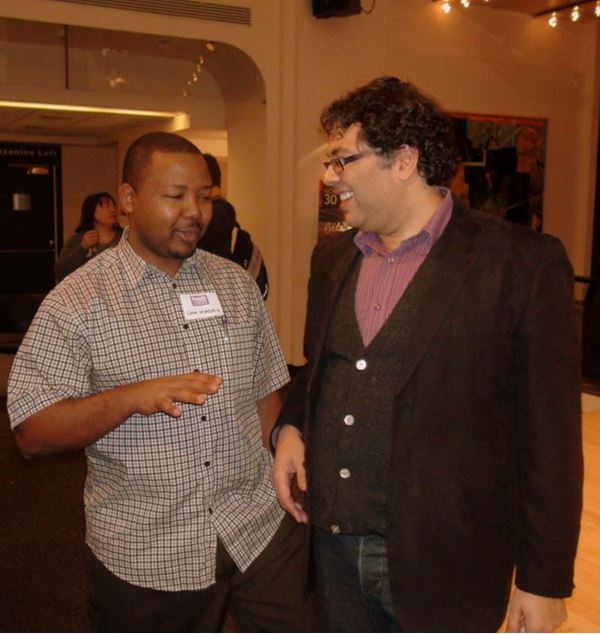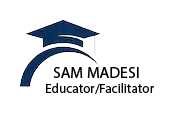What is the Role of the Student?
If I remember correctly, most of my professors at undergraduate and postgraduate levels have told me that ‘what we give you is about 30% and the rest (70%) is for you to find out.’ – Various sources.
If formal educators are only responsible for 30% of what we learn at educational institutions, then we probably have to dig out the 70% from informal and non-formal education methods such as seminars, workshops, speeches, public lectures, libraries, reports, internet, meetings, social media, print and non print media among others. Clearly, over 70% of total learning is the responsibility of the learner/student. Even then, it is still the responsibility of the student to understand the 30% that the teacher offers in a classroom setting. There is an old English saying that “you can lead a horse to water, but you can’t make it drink.” – Idioms by The Free Dictionary.
I’m not entirely sure whether I was just stubborn or being assertive when I asked my professor how old the literature being used in class was? The professor had laminated very old looking papers containing old notice and I could read the feeling among the learners that these notice had been used for so many decades. It was not just the old notice that was a problem, the professor was reading the notice as if it was a television journalist broadcasting historical news. Anywise, the professor was retrenched and we got another professor who was more engaging and cared about our learning process. My learning from this experience was that students need to demand better for their own learning process. Most likely, nobody else knows what happens in the classroom other than the learners themselves. Therefore, in my wisdom, learners have the right keys to unlock their rights to determine what they want to learn and how they want to learn it.
At-least from my own experience I learn that the most common challenge that faces experienced educators is complacency. I have been a victim of such complacency and I know how and why that might happen. In my experience, after three or four years of engaging students in determining what they want to learn and how, I sometimes start to generalization and assume that the next class will be the same. I incorrectly start to develop imaginary learning content based on previous participants learning needs until the first day of class when I realize that students do not have the same learning needs. Not even consistency in research patterns would justify my assumptions. One incident around the world can change what students want to learn and how. September 11 in the states has changed so many curriculums, policies, structures and systems around the world and accordingly, the education system. It should be noted that even process advocates like me do prepare some literature which we give out as reference materials. We prepare those materials based on the the history of learning needs over the years but not necessarily the absolute content of the current course. From my experience, I have observed that participants usually appreciate that they are learning what they want, but that there should be related reference materials should they need them.
in my opinion, the most important role of the learner is to engage the educator in by asking critical questions in order to learn more not just from the educator but fellow learners as well. For over 23 years, I stopped asking chorus questions like ‘have you understood’? Are we together? It takes a very brave student to say ‘no.’ Instead, I make sure my students get used to a feedback system ‘during and after every session.’ It is not uncommon to hear educators making comments such as ‘I loved working with that class or student’ literally meaning that learners engage educators differently and every class is different depending on who is in that class. The learning journey is similar to the development process in a sense that community members or the learners themselves must be the drivers to their own goals and never to depend on outside educators. It is only when learners develop their learning consciousness that they begin to advocate for learning approaches that facilitates their path to their goals. One of the most inspiring quotes by Rev. Dr. Moses Coady is when he said “they shall be masters of their own destiny.”
I feel blessed to have learned and co-facilitated with some of the best educators in the world. Working with Olga Gladkikh for 13 years on accountable democracies at the Coady International Institute of St. Francis Xavier University tough me how to read students body language during sessions. Through practice, I now know which student is about to ask a question and most likely what question. As if to prove a point, when I address that question, the student’s posture changes immediately to that of one who is ready to listen more and follow the discussion in the learning space. The interesting thing is that I share these body communication skills with my learners at the beginning and I’m always excited when they use them to alert me especially when uncomfortable! Somehow, I need my learners to talk to me in whatever form possible because I’m not a Jewish prophet nor related to one to know whether my participants are following or not. In whatever the case, students have a shared responsibility of guiding the learning process.
In my opinion, learning is like a democracy and I’m inclined to change the narrative of Abraham Lincoln’s words and say ‘education of the people, by the people and for the people.’
introduction
Talk to me for help
I help global learners with their ambition’s most critical issues and opportunities. Together, we create enduring change and results.

career
Find your will now
I help global scholars with their organization’s most critical issues and opportunities. Together, we create enduring change and results.


